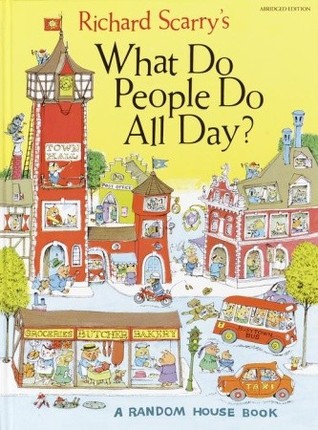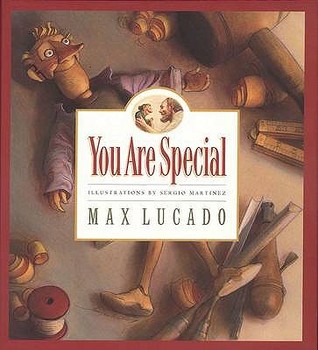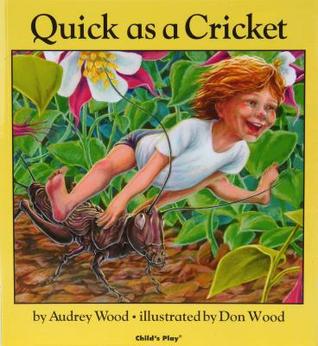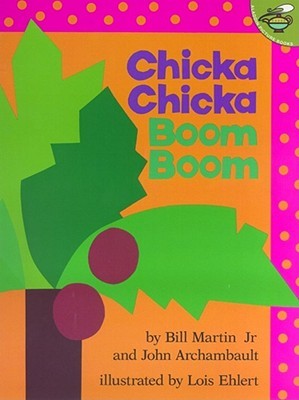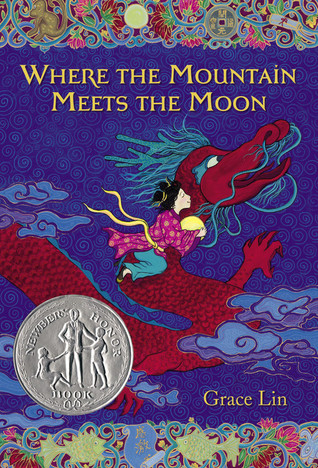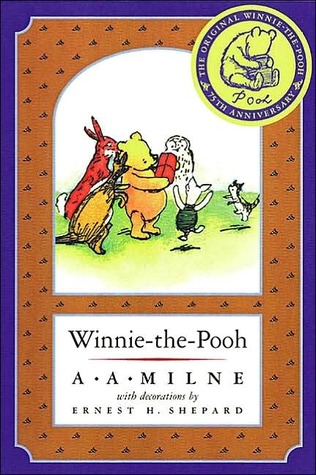I'll admit, before we homeschooled, I probably had some pre-conceived notions of what a 'typical' homeschooler would be like. It was a vague idea, and not necessarily insulting in any way, but I pictured a Caucasian Christian family with lots of kids, living in some rural area. Homeschooling really wasn't on my radar, but as I've now become 'one of them', I'm a lot more aware of the stereotypes that have been built up over the years about homeschoolers, and sadly, there's a lot of negativity surrounding it. It really upsets me when I hear judgmental comments based on stereotypes, whether it's about race, homeschooling, religion, gender, parenting style, ANYTHING!
The most common ones are socially awkward kids or religious fundamentalists. I have to say, those probably make up a pretty small segment of the homeschooling population. As I've encountered more and more homeschoolers, whether in person or in the virtual world, I've found such a variety in the homeschool world - religious (and not just Christians, but Jews, Hindus, new-age spiritual, and more) and secular, gifted and those with special needs, bouncing off the walls and quiet/shy, Caucasians, Asians, African-Americans, bi-racial, parents with Ph.Ds and parents who didn't graduate high school and everything in between, unschoolers and online schoolers, conservatives and liberals, wealthy and struggling, single parents, working parents, Creationists and evolutionists, city dwellers and farmers, etc. Far from being an isolated mono-culture, it encompasses such a wide range, that stereotypes really have no basis.
Are homeschooled kids socially awkward? I'm sure there are some. But there's also socially awkward kids in public school! Homeschooling doesn't MAKE kids socially awkward.
A recent jab at homeschoolers was the claim that homeschoolers are anti-vaccine. Are there homeschoolers who are anti-vaxxers? Sure! But there's also anti-vaxxers in public school (using various exemption laws).
Is there potential for neglect or abuse in homeschool? Yes, but there's a lot of neglected and abused kids in public school too.
Are homeschooled kids sheltered? Maybe some, but I would argue that more often, they have a broader understanding of the world than a lot of public schooled kids who spend 35 hours a week inside a building with only kids their same age. If anything, the sheltering is from the media-influence pop culture full of alcohol, sex, drugs, unrealistic ideals for beauty, which probably even some public school parents would like their kids to be sheltered from.
Are they isolated? Maybe a few, but there's plenty of kids in public school, who, despite being surrounded by people all day, are internally isolated and lonely. Most homeschoolers are not actually *at home* all day long. They are at co-ops, extracurricular activities, meeting up with friends, attending classes, and going on field trips throughout the week.
With the increasing number of homeschoolers in our country, I hope this will be the beginning of the end of homeschool stereotypes. Just like I don't want to be judged for being Chinese, or a woman, or a Christian, or a working mom, I don't want to be judged for being a homeschooler.
Friday, February 13, 2015
Homeschool Stereotypes
Posted by
E
at
12:09 AM

Homeschool Stereotypes
2015-02-13T00:09:00-05:00
E
homeschool|stereotypes|
Comments
Labels:
homeschool,
stereotypes
Monday, February 9, 2015
"Fresh Off the Boat" TV series
I'm certainly glad to see Asians represented in the media, but at first, I was apprehensive. First, Eddie Huang's memoir was certainly atypical of the Asian American experience. This is not a 'tiger mom',piano-playing childhood, it was alot of violence, drugs, partying, gangs, rap-music, cursing, etc. Yes, there was certainly relatable moments-feeling ostracized at school and the bullying...but in general, the book and Eddie's life wasn't something I could relate to. So I worried about the TV show, Of course, being on TV, it had to be cleaned up, and also because it portrayed the younger years, it would avoid some of the more 'rough' parts, including the rough parts about his dad (the TV dad is soft compared to the dad portrayed in the book).
That being said, after the first 2 episodes, I can say, I think it can do well, and it even made me laugh out loud. I haven't watched sitcoms in quite a while, and when I do, I find them overly-contrived, forced, and unnatural. I was a bit disappointed after the first episode, and it made me cringe at times because it seemed too over-the-top, but once I embraced the 'over-the-top' antics, I thought it was laugh-out-loud funny!
The title of the second episode "Home, School, Home-school", admittedly, made me a little nervous. Not only was I now worried about Asian Americans being misrepresented, but also homeschooling! But I really do know so many Asian moms who made their 'A' students do extra tutoring programs outside of school and workbooks at home, that it was spot on! It's not really 'homeschool', as I do still think that a huge majority of Asians would never consider REMOVING their kids from school (at least not first generation Asians),
As the series continues, I hope this can really be a show that will launch Asians into the 'norm' of our culture. There's been so many blog posts and articles about this, there are so many expectations, and so many misgivings. I don't know how it is going to be received by non-Asians. Will they be offended ("Are you all sisters??", celebrating Cs on the report card)? Will they now form a NEW stereotype of Asians? Only time will tell, but I hope it will open the dialogue for more understanding of Asian culture.
That being said, after the first 2 episodes, I can say, I think it can do well, and it even made me laugh out loud. I haven't watched sitcoms in quite a while, and when I do, I find them overly-contrived, forced, and unnatural. I was a bit disappointed after the first episode, and it made me cringe at times because it seemed too over-the-top, but once I embraced the 'over-the-top' antics, I thought it was laugh-out-loud funny!
The title of the second episode "Home, School, Home-school", admittedly, made me a little nervous. Not only was I now worried about Asian Americans being misrepresented, but also homeschooling! But I really do know so many Asian moms who made their 'A' students do extra tutoring programs outside of school and workbooks at home, that it was spot on! It's not really 'homeschool', as I do still think that a huge majority of Asians would never consider REMOVING their kids from school (at least not first generation Asians),
As the series continues, I hope this can really be a show that will launch Asians into the 'norm' of our culture. There's been so many blog posts and articles about this, there are so many expectations, and so many misgivings. I don't know how it is going to be received by non-Asians. Will they be offended ("Are you all sisters??", celebrating Cs on the report card)? Will they now form a NEW stereotype of Asians? Only time will tell, but I hope it will open the dialogue for more understanding of Asian culture.
Labels:
Asian culture,
tv
Thursday, February 5, 2015
Gifted? ADD? Right-Brained? Visual-Spatial Learner?
I've never really liked labels, because it gives people some kind of pre-conceived idea of a person, without really emphasizing the individual, but I've discovered that in some ways, having a category to fit into helps to make sense of the individual's characteristics, and to learn how to connect, teach, and understand them.
Recently, we've been discovering a lot of great resources that might help us understand Monkey's learning style better. He has always struggled with focus/distraction. It would take him hours to do simple homework in kindergarten. It wasn't that he didn't know how to do it, he would just lose focus so easily! It was infuriating. This went on each year until we pulled him out to homeschool, assuming that, now that he has PLENTY of time to get the work done, he'd finally have more free time to explore other interests. He has always been very analytic and understood concepts at an early age, and he was always eager to jump into bigger and more advanced projects, wanting to learn multiplication before he learned addition, or wanting to build a robot, without understanding electricity, or wanting to create a Minecraft mod, without learning how to program. He'd understand math concepts, yet get a lot wrong because of simple arithmetic mistakes or just copying errors. He had trouble reading at first, really not understanding how to 'sound out the words.' And his spelling was....well, creative??
Gifted?
In school, he would space out and daydream. He claimed it was because he was bored and already knew the material, so his mind wandered. This got him in trouble more than once. So we knew that in some ways, he needed more of an academic challenge. At the same time, he also was a somewhat delayed reader, and has always had trouble with spelling, capitalization/punctuation, reading aloud, organizing his thoughts on paper. He tested high when testing for the gifted program at school, so we read up on giftedness, and learned that asynchrony is common in gifted kids, as one area develops faster than others. We read about how oftentimes, gifted kids have similar characteristics as ADD kids, because they are bored.
ADD?
But after a year of homeschooling, speeding up the academics so he doesn't get bored didn't seem to make a difference in terms of his focus. It would take him 2 hours to do an assignment that should take 30 minutes. We tried silence, we tried music. We tried couches, we tried tables and chairs. We gave him something to 'fiddle' with in his hands, and we tried having nothing in sight. He could just lose focus! After seeking some advice, we started looking into Inattentive ADD. He certainly fit most of the descriptions of ADD! But we felt he wasn't a severe case, and we don't want to medicate him, so we didn't look into getting him diagnosed officially, but I've still be reading up on how to adjust the teaching, the material and the environment to address the situation as if he has ADD. Just changing my mindset from 'You just aren't even trying hard', to 'I know this is really difficult for you to focus on this' was a huge game-changer for me. Realizing that his brain may not be producing the right chemicals to keep his attention made me more sympathetic rather than frustrated with him. I got some great insights at Learning-Abled Kids, which has a section specifically on homeschooling, as well as so many other resources.
Right-brained?
And THEN, someone else mentioned that he sounds 'right-brained'. I had no idea what that meant. The Right Side of Normal was recommended as a great resource, so I started reading up. The descriptions fit like T! Whole-to-part learning, vivid imagination, loves to build, global (rather than sequential) thinker...everything began to make a lot of sense. So now I'm devouring all the info I can about right-brained thinkers and how teaching them is different from the typical teaching methods in schools, which is geared much more toward left-brained thinkers(spelling tests, math drills, phonics). The difficulty with spelling, math facts, and reading makes sense now, as does the desire to learn algebra or build a robot.
Visual-Spatial Learner?
As I read one of the articles in the Right Side of Normal page, I found that another author had previously categorized certain types of learners that have similar patterns as 'Right-brained' people as 'Visual-Spatial Learners'. This is a term I had heard, but pretty much ignored. A great homeschooling blog that I follow, Eclectic Homeschoolers, had quite a few posts about Visual-Spatial Learners, with curriculum suggestions, and I had pretty much ignored every post, because I didn't think it was relevant to my son! Well, now that I realize that 'Visual-Spatial' has the similar characteristics as 'Right-brained', I am combing through all her articles about what she uses for her Visual-Spatial learners.
So, what is he???
Maybe none of the above, maybe a little of each, maybe ALL of the above....we just know he is still our little Monkey, and now we know how to address some of his differences. Well, we're learning how...It's a HUGE relief, and an open door, to finally realize that he is not alone, and WE are not alone as parents trying to teach with these differences. As much as I don't like the idea of labels, it certainly has allowed us to find the resources we need to address our concerns.
Posted by
E
at
6:49 PM

Gifted? ADD? Right-Brained? Visual-Spatial Learner?
2015-02-05T18:49:00-05:00
E
ADD|giftedness|My Story|right-brained|visual-spatial|
Comments
Labels:
ADD,
giftedness,
My Story,
right-brained,
visual-spatial
Thursday, January 22, 2015
Favorite Picture Books
My first post about reading aloud featured only chapter books, but we've been reading to our kids since they were babies, so I thought I would feature some picture books that we've really loved.
What do People Do All Day? - Richard Scarry - This has a 2-page spread for various settings, such as a bakery or a saw mill. There's so much to learn as it describes the different steps of how everyday things are made, and the different people and machinery involved. So much to look at and point to!! We read this over and over, not all at once, maybe focusing on 2-4 pages at a time, because it is to take in! We loved Richard Scarry's "Busytown" books, but this one was one of our favorites of them.
You Are Special - Max Lucado - Simple but powerful story about how each person is special and loved, and not to let other's opinions dictate your self-worth. A beautiful allegory of God's unconditional love. We loved all Max Lucado's picture books featuring the Wemmicks, including If I Only Had a Green Nose (great story about not following the crowd).
The Red Thread - Grace Lin - A touching fairy tale about a King and a Queen that search for child to bring into their home. We love how Grace Lin brings Asian culture into children's books. Two others of her picture books that we enjoyed (and introduced our kids to Asian culture) are The Ugly Vegetables and Dim Sum for Everyone. She's one of my favorite Asian American authors.
Quick as a Cricket - Audrey Wood Beautifully illustrated book that celebrates the diversity of personal attributes - quiet, loud, slow, quick, small, large, etc.
Chicka Chicka Boom Boom - Bill Martin, Jr. Great introduction to the alphabet! The rhythmic prose just begs to be read aloud!
This is just a small sampling of the great books we read when the kids were toddlers and preschoolers. Of course, there's so many more that are great read-alouds for the younger crowd, including all the Dr. Seuss books, Corduroy books, the Berenstain Bears (our kids LOVED these, but there's too many to list, and hard to pick a favorite), But really, ANY book is probably better than no books, and kids will gravitate to their own favorites. It's a little overwhelming, actually, to see how many picture books out there there are, but the more you read, the more ideas the kids will be able to explore!
Wednesday, January 14, 2015
Our Favorite Read Aloud Books
We are a family that LOVES reading aloud.
We began when our first child was just 6 months, and we haven't stopped. Along the way, we expanded from bedtime reading during our 10-11 hour car trips (I didn't want to just throw them in front of electronics) to visit family. To save our voices, we started using audiobooks on CD. Our first trip using audiobooks was probably about when the kids were 4 and 6 years old. They are now 8 and 10, and any car trip over 2 hours includes a book on CD. When we're at home, we read aloud after dinner or during quiet moments during the weekends. Some of the schoolwork we do as read-alouds too, because sometimes, reading aloud is what it takes to get them interested in the book enough for them to read it independently.
There's so many reasons we love reading aloud:
- It introduces ours kids to more advanced literature, with more vocabulary and complex sentence structure, than they can read independently.
- It lets them explore different genres that they are unlikely to pick on their own.
- It something we can all participate in and enjoy as a family, creating wonderful bonding moments and something we can all talk about together.
- It fosters discussion about a lot of different topics, opening up many teachable moments. There's history, sociology, psychology, science, culture...
I keep a running list of all the books we've been reading, but here are some of my favorites (the links below link to the book listings at the Goodreads website, where I like to review the books we've read. Because the reviews may have spoilers, beware of that if you want to read people's comments):
Wonder - R. J. Palacio - Wonderful story about being different and finding your place.
The Lion, the Witch, and the Wardrobe - C.S. Lewis. We loved the whole Narnia series, but especially this first one.
Where the Mountain Meets the Moon - Grace Lin . Beautiful, fanciful story taking place in China
Tales of the Kingdom - David and Karen Mains - Allegorical tale of God's Kingdom. This is a trilogy and we loved the entire thing.

Little House series - Laura Ingalls Wilder - Loved these classics!
Treasures of the Snow - Patricia St. John - A heartwarming story of forgiveness and love and change of heart.
Winnie-the-Pooh - A.A. Milne (and of course, the House at Pooh Corner too) - Always a classic
The World According to Humphrey - Betty Birney - fun, but also touching, story told from the point of view of the classroom hamster. We read the whole series, and I wouldn't say we loved ALL of them, but I loved the first one, and many of the others were very good as well.
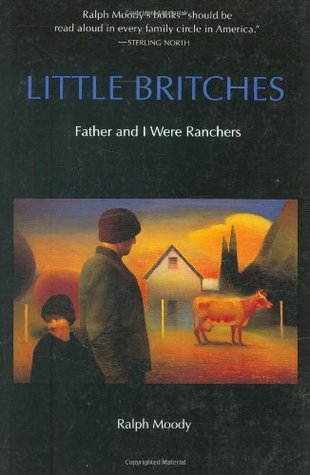
Little Britches Series - Ralph Moody - This is an autobiographical series written about the author's boyhood, in the early 1900s. It's almost like a 'Little House' series for boys. The first installment starts with the family moving west to become ranchers in Colorado, and the remaining books follow Ralph to various places in the US as their family moves around. There's a wonderful theme of hard work and resourcefulness and family that runs through the series.
The Hobbit - J. R.R. Tolkien - This is one of our favorite classic fantasy stories. It's got quite a lot of humor and adventure in it.
Tuesday, December 9, 2014
Indecisiveness -> Plenty of Options
I'm a very indecisive person.
I research everything, trying to make sure I pick the best option.
I read reviews, I ask people for recommendations, and if I can, I try to check things out first-hand. I just don't want to make a "wrong" choice.
So when it comes to choosing what resources we use in our homeschool, it was very hard for me to pick just one and stick to it. Because of that, I find myself using multiple resources. Everyone has their favorites, and there is a lot of quality materials out there! Each one has different strengths and styles, so it's hard to know which to pick!
Math: I use both Singapore Math and Life of Fred.
Language Arts: I use Learning Language Arts through Literature, Institute of Excellence in Writing, as well as Writing Strands. I also use some ideas from Brave Writer and Drawn Into the Heart of Reading.
World History: I'm using Mystery of History, Story of the World, Critical Thinking's World History Detective and as an additional supplement, the Usborne Encyclopedia of Ancient History.
On top of that, I have all 3 volumes of KONOS, because I couldn't decide which one to start with! (Thank God for used book sales!)
When I plan out our weeks, I intersperse the different resources so we may use several in a single week, or sometimes I'll stick to one for a week, then switch to another for another week. This allows me to get broad coverage of topics, and hopefully Monkey is getting the benefit of the various strengths that each one provides. It also allows me to try it out, and rule out one or more options if I decide it won't work for us. It's hard to decide anything based on reviews and recommendations. When we actually use a something, we can see whether it works or not for Monkey.
Since most books tends to be set up for 1 year's worth of material, this means we have to either double up our workload, or spend a longer time on completing each book. I'm not worried about taking as long as we need. I'm also not worried about skipping sections that I think are repetitive from some other source.
Because I'm so new to homeschooling, I'm not sure how sustainable this is. Maybe at some point I'll have to just commit to one thing and run with it, but for now, I like being able to explore!
Posted by
E
at
11:55 PM

Indecisiveness -> Plenty of Options
2014-12-09T23:55:00-05:00
E
homeschool|
Comments
Labels:
homeschool
Monday, December 8, 2014
Kids' Chapter Books With Asian Americans as Main Characters
When I was a kid, there were virtually no books about being an Asian kid in America. I grew up reading Sweet Valley Twins, Ramona, Boxcar Children, and the like, and I enjoyed them. However, there was never a character that I could really relate to, growing up as the only Asian in my grade at my school - looking different than everyone else, celebrating different holidays than everyone else, eating different food than everyone else, speaking a different language at home than everyone else.
Fast forward 20-30 years, and there's some great choices now available for elementary-aged kids, with main characters who are Asian American. Here are some of my favorites:
Grace Lin's Year of the Dog and sequels Year of the Rat and Dumpling Days. Young Pacy is in elementary school and grows up in an suburban America. She lives her life as a clear minority in her school, but feeling for the most part like other American kids. As the books progress she notices that she's not as American as the rest of her friends. As she struggles internally with being Chinese on the outside, yet American on the inside, she learns about Chinese traditions and she learns to embrace her heritage and her unique situation of being Chinese, growing up in America.
Lenore Look's Alvin Ho series is a written from the point of view of a Chinese American elementary-aged boy. Alvin has many fears to overcome and the books cover a wide range of situations. It is very kid-friendly to read, with humorous lists, and many 'kid-comments' strewn throughout the book. It does not focus on his identity as an Asian, but he does struggle with not having many friends and being different from kids around him, which is a common situation among Asian American kids. We've read 2 of the books so far.
Lenore Look's other series Ruby Lu stars a 7-year-old Chinese American girl who has her share of antics. She reminds me alot of Beverly Cleary's Ramona-has her set ideas about stuff, gets into trouble, learns some lessons along the way, etc. There are little bits related to being Chinese woven throughout the book, but it is not the main focus. She goes to Chinese school and Chinese words are mentioned here and there(using Cantonese and Taishanese dialects), and the first book sets it up for some relatives from China to come live with them, but for the most part, it's the story of a little girl growing up in America. I have not read any other books beyond the first book yet.
In the Year of the Boar and Jacking Robinson by Bette Bao Lord follows a 5th grade girl who immigrates from her comfortable, familiar life in China to New York City. While she deals with culture shock and being the outcast, she feels a connection to Jackie Robinson, as an example of someone of another race who lives the American dream, and discovers that she too can embrace America as the land of opportunity.
 Year of the Book is the first of a series of books by Andrea Cheng about an elementary-aged Chinese girl growing up in America. Being Chinese is secondary to the storyline, where Anna struggles to make friends and navigate the social dynamics at school. In the other books, her Chinese heritage comes more into play
Year of the Book is the first of a series of books by Andrea Cheng about an elementary-aged Chinese girl growing up in America. Being Chinese is secondary to the storyline, where Anna struggles to make friends and navigate the social dynamics at school. In the other books, her Chinese heritage comes more into playMy kids are mixed race, and that is a whole other ballgame. I haven't really seen many books for kids that deal with being bicultural, so I only have these to mention:
Half and Half by Lensey Namioka tells the story of a middle-school aged girl who is half Scottish and half Chinese. She faces comments made by various people who assume she must be more of one culture than another and she wrestles with what it means to be bi-racial. While she explores both of her heritages, she ends up with a dilemma where she is double booked and seems she must choose between doing 2 events, one highlighting Scottish culture, and one highlighting Chinese culture.
Shanghai Messenger by Andrea Cheng follows a half Chinese girl of 11 who is invited to visit her extended relatives in Shanghai. At first apprehensive about her visit, she discovers a wonderful new world in China among her relatives who welcome her. This isn't actually a chapter book, but it's not quite a picture book either. It's written with poetic prose, with short glimpses of moments throughout this journey, and as you read about each event, you can see her letting go of her worries (of not being accepted for not being fully Chinese, of being among people who speak a language she doesn't speak, etc) and embracing her Chinese heritage. Being half-Chinese plays a role in her insecurities, but I think even those who are full-Chinese, but grown up in America, would be able to relate.
Subscribe to:
Posts (Atom)


